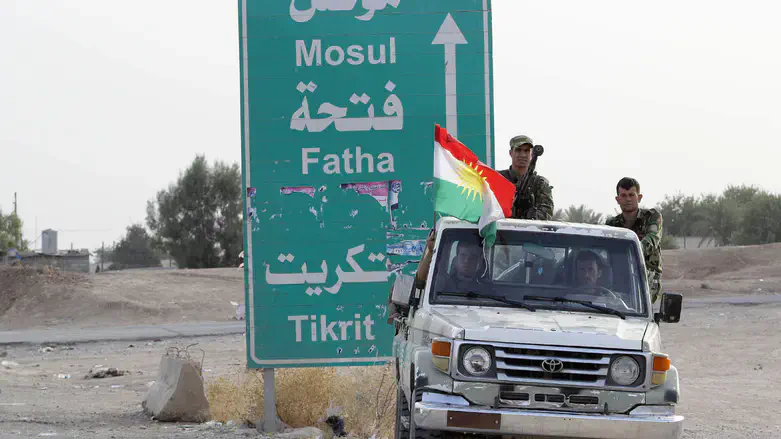
UNESCO, the UN cultural agency, has discovered five bombs hidden within the walls of the historic al-Nouri Mosque in the city of Mosul in northern Iraq, a remnant of the Islamic State (ISIS) group’s rule over the area, UNESCO said on Saturday, according to The Associated Press.
The mosque, famous for its 12th-century leaning minaret, was destroyed by ISIS in 2017 and has been a focal point of UNESCO’s restoration efforts since 2020.
The UN agency said that five large-scale explosive devices, designed for significant destruction, were found inside the southern wall of the Prayer Hall on Tuesday.
“These explosive devices were concealed within a specially rebuilt section of the wall,” the statement said, according to AP. “Iraqi authorities were promptly notified, secured the area, and the situation is now fully under control.”
It added that “one bomb has been defused and removed, while the remaining four are interconnected and will be safely disposed of in the coming days.”
Iraqi authorities have requested that UNESCO halt all reconstruction operations at al-Nouri mosque and evacuate the entire complex until the devices are disarmed.
ISIS conquered Mosul, which is located in a predominantly Kurdish region in northern Iraq, in June 2014.
After more than two years of fighting around Mosul between Kurds and other militia groups against ISIS, the Iraqi military launched an offensive in 2016 aimed at retaking the city – and driving ISIS from northern Iraq.
The Iraqi military eventually retook the city, dealing a severe blow to ISIS.
Several military offensives, including those backed by the US-led international coalition, later saw ISIS lose most areas it once controlled, including the loss of their de facto capital in Raqqa, Syria.

